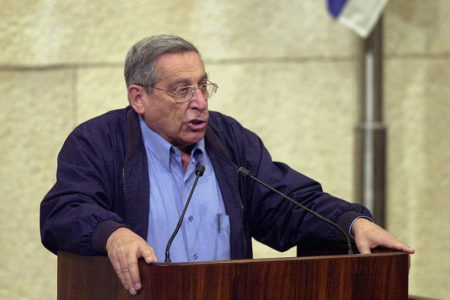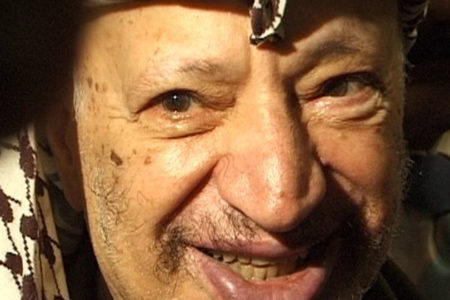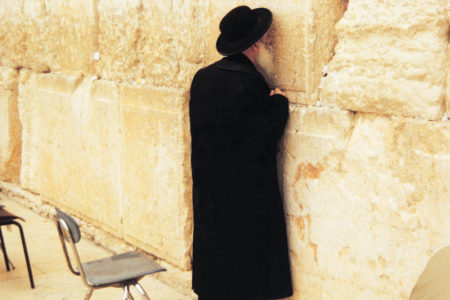Standing Tall in the Rose Garden
When George W. Bush strode into the White House rose garden in June, much of the world waited somewhat eagerly to hear what the U.S. chief executive would say. He said a mouthful. Some likened his historic verbal missile to Harry S. Truman’s courageous endorsement of the reestablishment of the Jewish national homeland in 1948. Rep. Tom Lantos of California, a Holocaust survivor and ranking Democrat on the House International Relations Committee, summed up the president’s big theme in a simple sentence. President Bush, he said, “announced the end of the Arafat era.”
As one would expect, naysayers swept in from every direction to take the chief executive to task for what he did or didn’t say. Granted, much more could have been said in relation to virtually every aspect of the speech. And, frankly, there were issues, such as the Israeli settlements, disarming of the Palestinians, his reference to “occupied territories,” and provisional Palestinian statehood, that will no doubt be debated with some enthusiasm in the future.
However, what should rightly be the focus of our attention is what Bush did say that represents a fundamental redirecting of administration policy in the Middle East. In this regard, the president stepped forward in his own right to articulate his foreign policy. In other words, the real George W. Bush stood up. Gone were the equivocation and frustrating mixed signals reflecting the views of appeasement-leaning Arabists in the State Department. A day after his speech, one commentator opined that the only reason the president had come down so heavily in favor of Israel was to grab the Jewish vote. That kind of pervasive liberal cynicism fails to reckon with the fact that perhaps this president had weighed the evidence; looked into the future; thoroughly evaluated what was in the best interests of America, Israel, and the Palestinian people; then made a decision to do the right thing. Keystones were the following:
Palestinian Authority Chairman Yasser Arafat, his cadre of corrupt killers, and the terrorist infrastructure must go.
There will be no U.S. recognition of even a provisional Palestinian government until terror ceases and democratic leaders and reforms are in place.
American financial support will not be forthcoming if the Palestinian people refuse to opt for peace. The president reinforced this position at the G-8 economic summit in Canada a few days later.
With the president’s historic declaration, three things become clear. (1) Israel has an ally. The “honest broker” façade, which only weakened America’s ability to act, came down. There was solidarity on the matter of Israel’s security, and there was unity in the war on terror. (2) Israel has the president’s backing to do what is necessary to protect the lives of its citizens. (3) The Palestinian people have a viable option to accept or reject oppression, poverty, and the misery of constant warfare.
The United States and free world stand ready to launch a “Marshall Plan” type of economic venture capable of elevating the Palestinian people to a plane of economic, educational, and social attainment they have never known.
And for those concerned for the welfare of Christian Arabs within the Palestinian entity, there is hope that, if enacted, democratic reforms would end the growing persecution by Muslim radicals, which has gone unchecked under the Arafat regime. Furthermore, the hostility that has closed Christian holy sites, such as Bethlehem, would be ended; and the civility between Arabs and Christians in decades past would be restored.
None of this, of course, would be a walk in the park. Yasser Arafat has declared that he will run for reelection in the planned January 2003 elections. Many believe he will be a shoo-in. Should the Palestinian people reinstate him and his cronies, they will have clarified the path they have chosen. Make no mistake about it; they have a clear choice. If they elect candidates who will act responsibly and bring their people into the “civilized” world of the twenty-first century, they will usher in a new beginning for themselves and certainly for the State of Israel.
If, instead, they revert to the old ways and reelect their bloodthirsty leaders, it will mean only one thing: The Palestinians are more interested in annihilating Israel and its people than in making better lives for themselves, their children, and the generations to follow. Let’s pray that this will not be their fatal choice.






